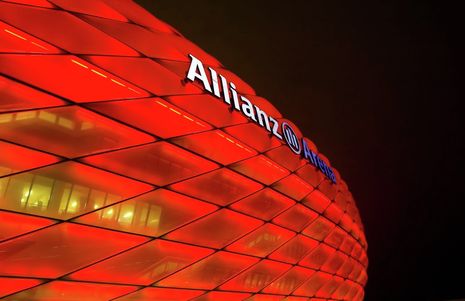Bundesliga manager shake-up: a model for the Premier League’s hiring patterns
Germany’s internal coaching carousel continues, while England’s looks to be beginning

In March, Joachim Löw announced that he would be stepping down as manager of the German national team after fifteen years at the helm. Bayern Munich manager Hansi Flick was appointed in May as his replacement. Flick is well-suited to the role, having previously served as Low’s assistant from 2006-2014, as part of the squad that won the World Cup in his final year. Flick asked to terminate the remaining two years on his contract at Bayern Munich, provoking consternation from both the club’s fanbase and board. Understandably so, considering his achievements over the past eighteen months; winning the UEFA Champions League (UCL), DFB-Pokal and Bundesliga in his first season is no mean feat. The Bavarians had a tougher time of it this season, losing to PSG in the quarter-finals of the UCL and crashing out in ignominious fashion to second-division side Holstein Kiel in the second round of the DFB-Pokal. However, they went on to win their ninth straight Bundesliga title and also put ink to paper on the summer signing of one of their closest rivals’ best player, RB Leipzig’s Dayot Upamecano. Bayern’s seemingly eternal dominance of German domestic football looks set to continue, yet Flick’s departure has caused a domino effect that leaves some of Germany’s top clubs with new managers going into the 2021/22 season.
“Flick’s departure has caused a domino effect that leaves some of Germany’s top clubs with new managers”
Solidifying their supremacy, Bayern have named Julian Nagelsmann as Flick’s replacement - the 33-year-old RB Leipzig boss who has garnered praise across Europe as an exciting, attack-minded young coach. Prioritising a high press and swift counter-attack over possession-based football, he guided Leipzig to a second-place finish this season, one point above third-placed Borussia Dortmund. Back in 2016-17, Nagelsmann took 1899 Hoffenheim to their first ever Champions League qualification. Touted as a potential replacement for Jose Mourinho at Tottenham, he opted to take the Bayern job. At 33, it is unclear how long he intends to remain at the Allianz Arena. With no Bayern manager other than Pep Guardiola staying more than three years since 2004, a move to the Premier League could come sooner rather than later.
The domino effect created by Flick’s departure further extends to Leipzig’s appointment of Jesse Marsch as the man to fill Nagelsmann’s boots. Having previously managed New York Red Bulls and RB Salzburg, the American is very much a fixture of the Red Bull organisation. His record at Salzburg is impressive, boasting a 68% win percentage, albeit in a team that has won eight Austrian Bundesliga titles on the trot. Marsch echoes Nagelsmann stylistically, emphasising an energetic, fast-pressing team who attempt to play through the middle rather than use the wider channels. Furthermore, Marsch has been lauded as a manager who focuses both on the footballing aspects of a team as well as the ethos and culture within the dressing room, describing football as a “way of life”.
“...an assured shift in football philosophy is taking place in the English game”
Elsewhere, Borussia Mönchengladbach boss Marco Rose has replaced Borussia Dortmund’s interim manager Edin Terzic at the end of this season. He too is a former RB Salzburg boss, experiencing similar success to Marsch. In his first season at Monchengladbach, he steered them to fourth, securing a UCL spot for the 2020/21 season. Exceeding many expectations, the team came second in a tough group that included Inter Milan and Real Madrid, and were unlucky to be drawn against eventual finalists Manchester City in the first knockout stage. Like Nagelsmann and Marsch, Rose favours dynamic attacking football, utilised most often in a 4-4-2 diamond formation. With Dortmund’s late flourish just about sealing them third position (fourteen points behind Bayern), and the futures of Jadon Sancho and Erling Haaland uncertain, Rose could face an uphill struggle at the helm.
In view of this activity taking place on the continent, a parallel can be drawn with the managerial hiring trends in the Premier League. Since the departure of stalwarts Arsene Wenger and Sir Alex Ferguson, the league has seen an influx of younger coaches. The likes of Mikel Arteta, Ole Gunnar Solskjaer and, until recently, Frank Lampard, encapsulate a focus amongst some of England’s top clubs to trust in ex-players who not only know football, but also the clubs they manage. With media talk constantly labelling Steven Gerrard as Klopp’s natural successor at Liverpool, another ‘big six’ club may eventually fall in line with this recruitment pattern.
Dubbed the ‘Nagelsmann effect’ in Germany, an emphasis on the progress of domestic youth players has also permeated top-flight English football. Despite a disappointing league performance, Arteta moulded the first-team places of Bukayo Saka and Emile Smith-Rowe at Arsenal, as well as tied exciting academy graduate Folarin Balogun to a new long-term contract. Likewise, Mason Greenwood, Dean Henderson and Brandon Williams have all been given the chance to flourish under Solsjkaer’s leadership at Manchester United. Meanwhile, Lampard’s Chelsea witnessed the most dramatic promotion of young players. Tammy Abraham, Mason Mount and Reece James now contend for Gareth Southgate’s England squad, all of which being another number on Chelsea’s lengthy loan-list before Frank’s arrival. Ironically, Mount’s continued presence in the Chelsea squad is now guided by Thomas Tuchel, a product of Germany’s coaching system after rising up the ranks with Mainz 05 and Borussia Dortmund.
The Bundesliga’s managerial changes, and the subsequent ascendancy of Julian Nagelsmann, represent the well-oiled German football machine that churns out both domestic playing and coaching talent year after year. With the Premier League embarking on a similar strategic path, an assured shift in football philosophy is taking place in the English game, which bodes well for the chances of England’s success on the international stage.
 News / Report suggests Cambridge the hardest place to get a first in the country23 January 2026
News / Report suggests Cambridge the hardest place to get a first in the country23 January 2026 News / Students condemn ‘insidious’ Israel trip23 January 2026
News / Students condemn ‘insidious’ Israel trip23 January 2026 News / Cambridge ranks in the top ten for every subject area in 202623 January 2026
News / Cambridge ranks in the top ten for every subject area in 202623 January 2026 News / Uni denounced for bypassing ‘democratic structures’23 January 2026
News / Uni denounced for bypassing ‘democratic structures’23 January 2026 Comment / Cambridge has already become complacent on class23 January 2026
Comment / Cambridge has already become complacent on class23 January 2026










